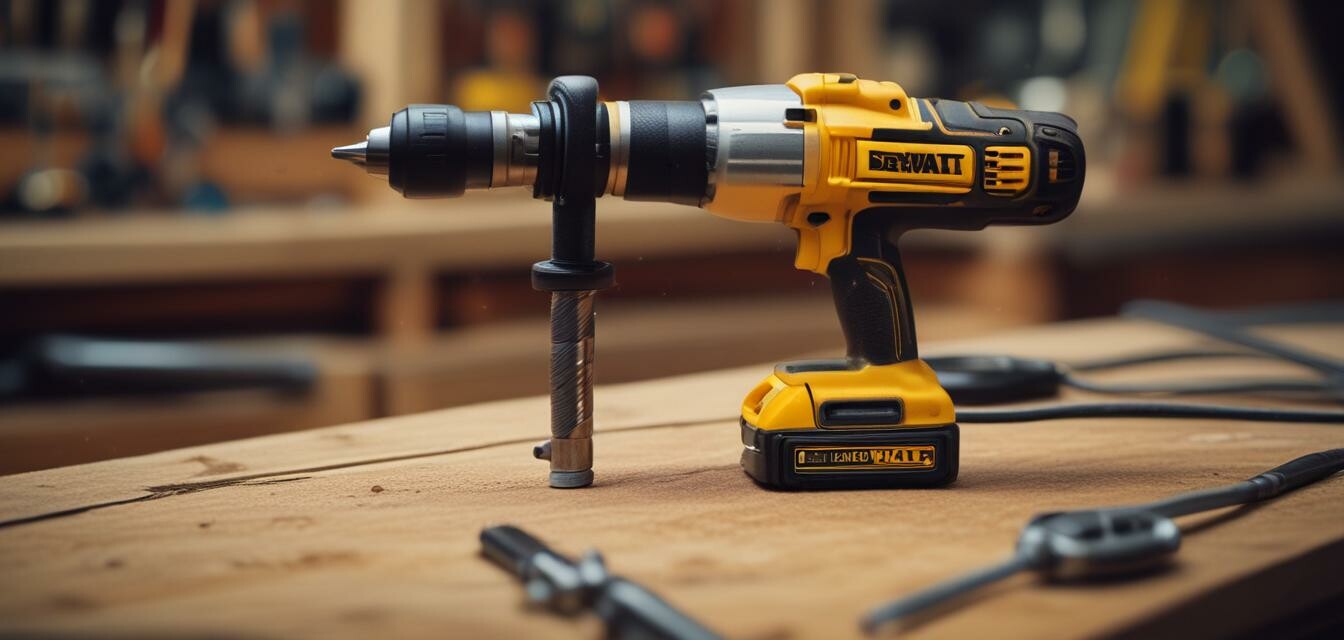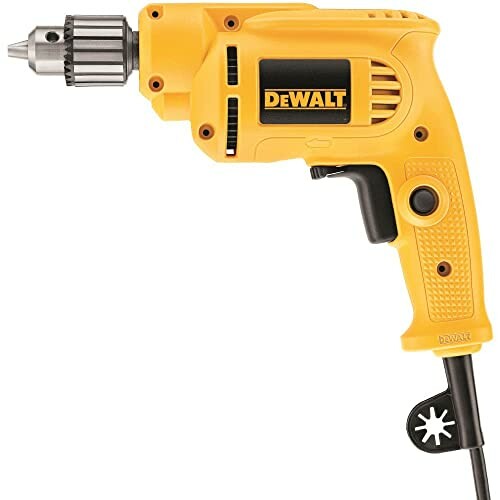
How to Choose the Best Corded Drill for Your Needs
Key Takeaways
- Understand your drilling needs: power, size, and type of materials.
- Consider features like variable speed settings, chuck types, and weight.
- Evaluate brands and read reviews for performance assurance.
- Compare prices to find a drill that fits your budget without sacrificing quality.
Choosing the right corded drill can be a challenging task, especially with the numerous options available in the market. This guide will walk you through essential factors to consider, helping you find the perfect tool that suits your needs—whether you’re a DIY enthusiast or a professional contractor.
Factors to Consider When Choosing a Corded Drill
1. Power and Performance
The power of a corded drill is often measured in amps. Higher amperage typically means more power, which is essential for tougher jobs.
| Amperage | Typical Use |
|---|---|
| 5 - 7 Amps | Light DIY tasks and light woodworking. |
| 8 - 10 Amps | Medium-duty jobs and general home improvement. |
| 11+ Amps | Heavy-duty applications and professional use. |
2. Features to Look For
Different models come with various features that can enhance usability:
- Variable Speed Settings: Allows greater control based on the material and task.
- Chuck Size: A larger chuck can hold bigger drill bits, which is beneficial for heavy-duty tasks.
- Weight and Design: A lightweight design reduces fatigue during prolonged use.
3. Type of Drill
Different drills cater to different tasks:
- Standard Drills: Good for general drilling tasks.
- Hammer Drills: Ideal for drilling into masonry or concrete.
- Impact Drills: Best for driving screws and bolts into tough materials.
Top Corded Drill Recommendations
DEWALT Corded Drill with Keyed Chuck, 7.0-Amp, 3/8-Inch
This DEWALT drill combines a powerful 7-amp motor, compact design, and a variable speed trigger for versatility. It’s lightweight, making it perfect for both DIYers and professionals.
Learn More4. Brand Reliability
When choosing power tools, brand reputation plays a vital role. Established brands typically ensure quality and offer better customer support. Check for reviews and feedback.
Understanding Cost vs. Quality
When budgeting for your next drill, remember that while lower prices are tempting, investing in a high-quality tool pays off in the long run. Here’s a general price range:
| Price Range | Quality | Typical Uses |
|---|---|---|
| $30 - $60 | Basic Quality | Simple home tasks. |
| $60 - $120 | Mid-Range Quality | Regular DIY projects. |
| $120+ | Professional Quality | Frequent or heavy-duty tasks. |
Additional Tools to Consider
Depending on your projects, you might want to complement your drill with other tools:
- Drill bits and accessories
- Tool storage solutions
- Impact wrenches for bolting tasks
Conclusion
Choosing the best corded drill should align with your specific needs, the types of jobs you plan to take on, and your budget. Always consider power, features, and brand reliability before making your purchase decision. With the right information, you can select a tool that will serve you well for years to come.
Pros
- Powerful performance for various tasks.
- Durable design for long-term use.
- Wide range of attachments for increased functionality.
Cons
- Depends on a power outlet, limiting portability.
- Can be heavier than cordless options.
Key Resources
For more information, check out our detailed guides on:
- Power tools buying guides
- Power drills resources
- In-depth corded drills information
Final Thoughts
By taking into account the factors above, you can confidently choose a corded drill that perfectly matches your needs. Start your journey towards efficient and effective drilling today!
